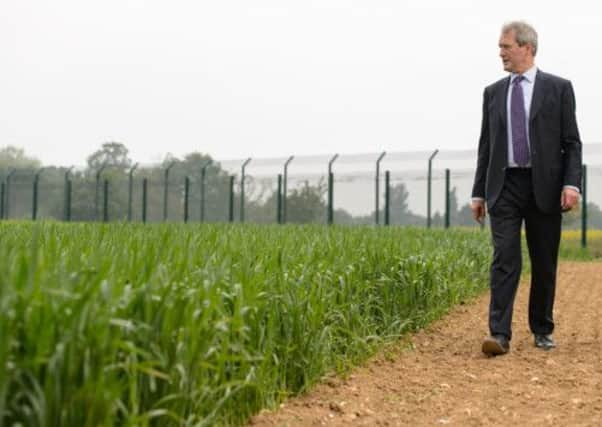GM foods ‘safer than conventional crops’


Mr Paterson attacked critics who described GM produce as “Frankenfoods”, insisting the crops could have important environmental benefits and help save lives in poorer countries.
The Environment Secretary called for changes in the way the crops are regulated in Europe, warning that British farmers and scientists were being forced to operate with “one hand tied behind their back”.
Advertisement
Hide AdAdvertisement
Hide AdIn a major speech Mr Paterson said: “I believe that it’s time to start a more informed discussion about the potential of genetically modified crops.”
Mr Paterson said major European studies had concluded that there was “no scientific evidence associating GMOs (genetically modified organisms) with higher risks” for the environment or safety. They also concluded “the use of more precise technology and the greater regulatory scrutiny probably makes GMOs even safer than conventional plants and food”.
The Environment Secretary said: “As with all technologies, public and environmental safety is paramount. The reality is that in Europe and elsewhere, GM is perhaps the most regulated of all agricultural technologies.
“There are some that describe GM crops as ‘Frankenfoods’, deliberately termed to imply that they pose a risk to human health and the environment.
Advertisement
Hide AdAdvertisement
Hide Ad“The truth is that products are subject to extensive testing and development in tightly controlled conditions.”
Because GM food could be produced more efficiently, Mr Paterson suggested land could be returned to nature instead of farmed and pest or disease-resistant GM crops could also benefit wildlife.
“We are currently debating the effects of pesticides on bees and other insects. In other parts of the world where GM crops are grown, plants are better protected against pests and insects are better protected against accidentally being sprayed,” he said.”
Mr Paterson spoke at Rothamsted Research in Hertfordshire, where he toured the only active GM crop trial in the UK, for wheat that has been engineered to contain a gene from peppermint that deters aphids and attracts their predator, a parasitic wasp.
Advertisement
Hide AdAdvertisement
Hide AdHe said that an area seven times the size of the UK was being used to cultivate GM crops worldwide, but Europe risked being left behind.
Mr Paterson said: “We need evidence-based regulation and decision-making in the EU.”
Greenpeace UK’s chief scientist Dr Doug Parr said: “Paterson should be asking what works rather than blindly following agribusiness propaganda.”
Peter Melchett, policy director of organic campaign group Soil Association, said: “GM is the cuckoo in the nest. It drives out and destroys the systems that international scientists agree we need to feed the world.”